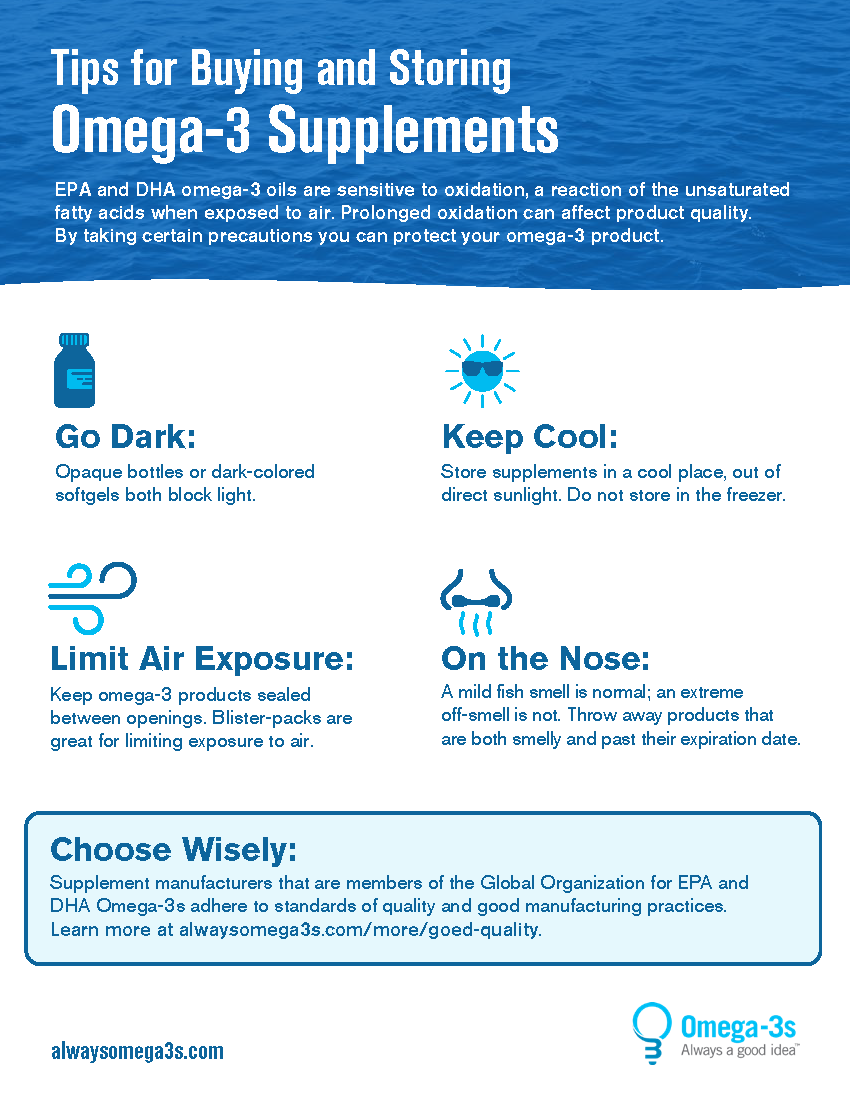Purchasing and Taking Care of Omega-3 Supplements
EPA and DHA omega-3 oils are sensitive to oxidation, a reaction of the unsaturated fatty acids when exposed to oxygen. Some oxidation is perfectly fine – think of apple flesh that turns brown once it’s sliced – but prolonged oxidation can affect product quality. Light and temperature can affect oxidation rate, but by taking certain precautions you can protect the quality of your omega-3 product.
Choose Wisely
With numerous omega-3 supplements on the market, how do you choose the best one? Supplement manufacturers that are members of GOED (the Global Organization for EPA and DHA Omega-3s), adhere to standards of quality and good manufacturing practices that are as strict or stricter than regulations around the world. For more information about GOED’s commitment to quality and for a list of member companies that make supplements, click here.





